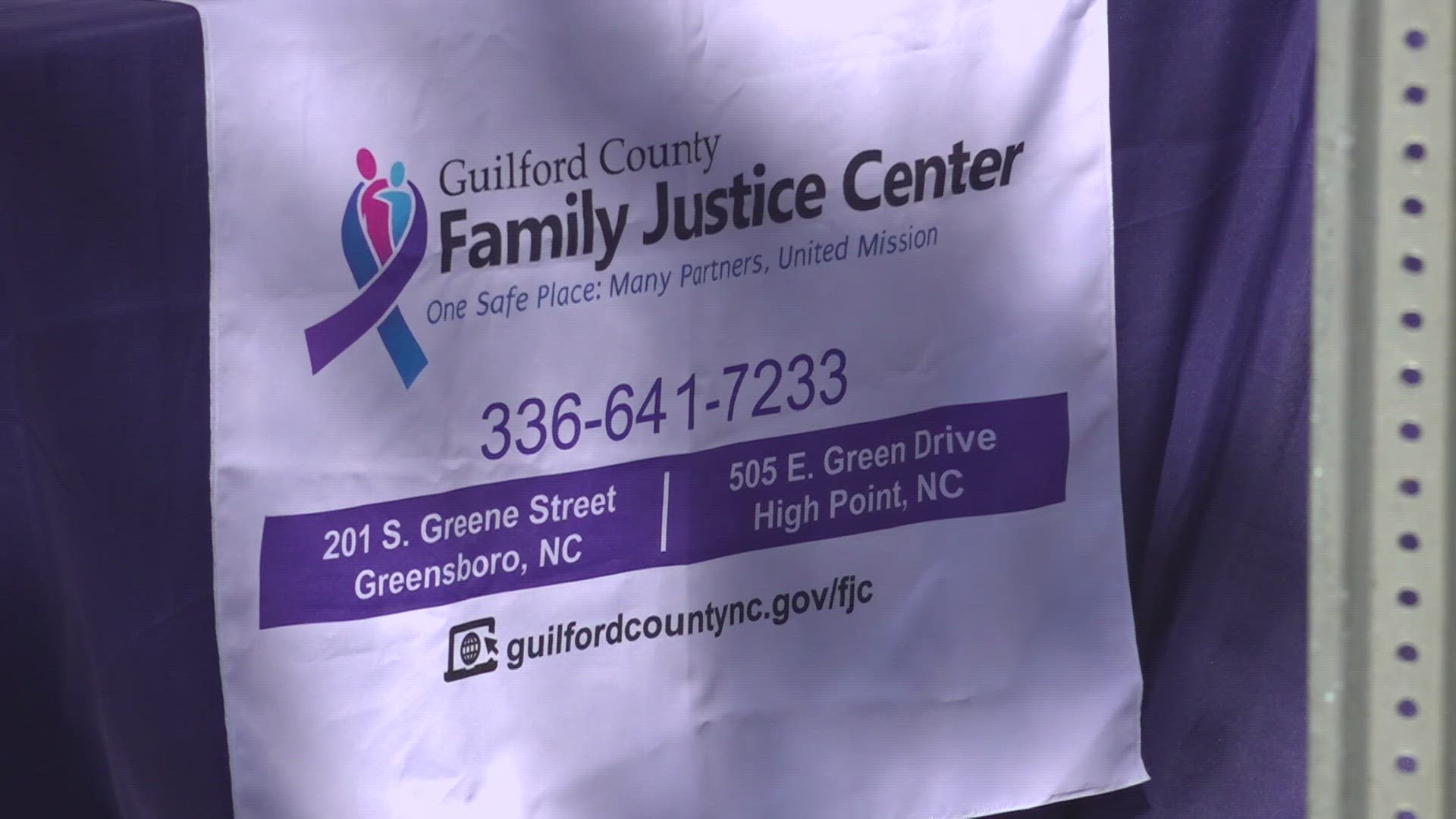HIGH POINT, N.C. — Nearly 20 people per minute are physically abused by an intimate partner on average in the United States, according to data from the National Coalition of Domestic Violence.
Since opening, Guilford County's Family Justice Center in High Point has had over 22,000 survivors walk through their doors.
One of the things that prompted the opening of the Family Justice Center was that services for victims were scattered across the city and county. The center prides itself on bringing all those services into one location and helping those navigate domestic violence situations and more.
"From the youngest to the wisest, we offer wraparound services for those who have experienced child abuse, domestic violence, sexual assault, elder abuse, and stalking, and our partners here are ready to serve folks wherever they are in that experience of violence and abuse, or emotional abuse, financial abuse, physical abuse, that can look a lot of different ways," Director of High Point's Family Justice Center, Catherine Johnson.
In 2020, there were 91 intimate partner homicides here in North Carolina, also according to NCADV. Johnson said that the center itself is a homicide prevention initiative.
One of the programs the center hosts is Camp Hope, which is specialized youth programming that offers youth living with domestic violence and trauma a pathway to hope through year-round community, mentoring, and summer camp.
Camp Hope has made quite a difference in the lives of Lee Bryson and her grandson Benji. Bryson's daughter is currently awaiting trial accused of killing her husband after years of domestic abuse. Benji came to live with Bryson in High Point as his mom awaits trial. Bryson said Camp Hope helped save him.
"Before Camp Hope, he would not leave my side. he would not sleep in another bed because he didn't know if he was going to go to sleep and wake up and I was gonna be gone, cause every time he woke up somebody was dead, or gone," Bryson said.
High Point's Police Chief, Travis Stroud made a call to action, asking those who hear about or are involved in a domestic violence situation to put victims first and to hold offenders accountable before helping them seek help.
"You need to be the voice that pushes against that every time you hear it. I have no problem with helping offenders when it's time to help them but your victims and survivors got to be taken care of first, every single time," Chief Stroud said.
Johnson said on average, survivors who seek help at the Family Justice Center see about five different agencies in about three hours. Again, making it easy for the victim to receive help without having to drive from building to building or even city to city for assistance.

